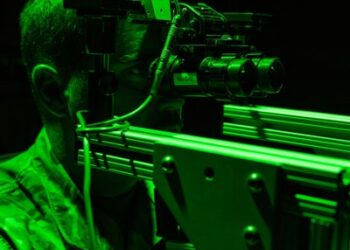The White House’s nominee for the assistant defense secretary for mission capabilities, James Caggy, emphasized that most U.S. tech companies are eager to sell their innovations to the Pentagon. However, he noted that these companies often lack an understanding of the military’s specific needs. Caggy stated, “One of the things I’ve observed over the last few years is that the vast majority of American [tech] companies want to serve our nation, they want to develop and deliver capabilities to our warfighters. Sometimes they don’t always understand, from a threat-informed perspective, what our key operational problems are.”
Caggy’s comments, made during his Senate confirmation hearing on Tuesday, address a crucial issue in military technology adoption known as the “Valley of Death,” where technologies fail to transition from laboratory success to practical battlefield use. As a former technologist at Amazon Web Services and an ex-advisor to the Pentagon’s Strategic Capabilities Office, Caggy aims to foster better relationships between the military and the industry, providing companies with a clearer understanding of current and future operational challenges.
In 2023, the Pentagon reorganized its chief technology officer role into three assistant defense secretary positions: one for science and technology, one for critical technologies, and Caggy’s focus on mission capabilities — a role designed to ensure that new technologies are effectively implemented in military operations. During his testimony, Caggy expressed concern over bureaucratic obstacles that impede rapid prototyping and experimentation.
Caggy articulated his priorities for the new office through responses to policy questions, highlighting his intent to collaborate with emerging defense tech startups and increase the number of joint prototyping and experimentation exercises over the next year. He asserted, “The metric I care about is speed with credibility: how quickly we can prove that a technology works and field it at scale,” vowing to implement policies aimed at shortening timelines without compromising safety or effectiveness.
The confirmation hearing also included testimony from Joseph Jewell, nominated as assistant defense secretary for science and technology. Jewell, an aeronautics professor at Purdue University who specializes in hypersonics, pointed to new tech threats such as drones capable of tunneling underground. He suggested that small businesses might be best positioned to generate innovative solutions for these emerging threats and emphasized the importance of Small Business Innovation Research (SBIR) and Small Business Technology Transfer (SBTT) programs in bringing new ideas to fruition.













